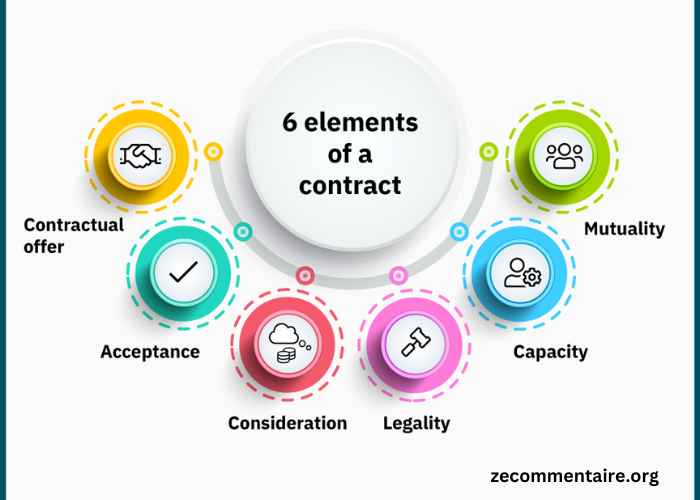Contracting in modern society does not involve signing papers and using a pen. Online contracting has become customary for fast and efficient agreement execution. From accepting the terms of service while subscribing to a new application to sealing a business contract, everything is now done online.
Online contracts are legal agreements that are made using the internet. These contracts can be as basic as the ‘I agree’ checkbox that you have to tick in order to update an app, to a more official contract drawn up between two companies.
However, it is important to understand the fundamentals of a contract online in order to make sure that the contracts entered into are legal and can be enforced. This article will tell you all about it.
Elements of an Online Contract
For an contract online to be valid and enforceable, it must contain certain key components. First and foremost, it requires “offer and acceptance.” What this means is that one of the parties offers a deal and the other approves it after reviewing the included conditions. It is important for both parties to have a proper understanding of what is being agreed upon, otherwise there may be controversy.
Another important component is “consideration,” and it means value that has been promised by each of the parties. In the case of online contracts, it could be goods or services for money, or even for sharing of information, or other tangibles.
Finally, there must be mutual assent of the parties to the contract. This intent and consent are typically expressed and evidenced by electronic signatures or by checking a checkbox on a computer screen.
Legal Issues Pertaining to Online Contracts
For a contract online to be enforceable, it has to meet the legal requirements that apply to it, including the Electronic Signatures in Global and National Commerce Act (E-Sign Act). Both the parties involved in signing online contracts should ensure that the agreements are legal to avoid future regrets.
Additionally, data privacy and security are critical, particularly when dealing with personal information. Regulations that relate to data protection exist for a reason, so you need to be able to properly deal with the personal information in online contracts.
Guidelines for Drafting Effective Online Contracts
When it comes to creating an online contract, it is imperative to be clear. Explain in detail the functions, responsibilities and duties of the parties involved. It is also important to organize the document with clear subheadings and bullet points to guide the reader through specific sections.
Ensure that it is easy for the parties to sign the contract. Elements such as e-signatures and clickwrap help to ensure that consent is expressed in a very easy and clear way.
Conclusion
Online contracts are a fundamental necessity in the current business world and even in personal everyday dealings. With proper knowledge of the main parts surrounding online agreements, anyone desiring to develop such agreements will be able to have them as effective and lawful as possible. Note that having a good online contract is not only legal, but it also fosters trust for parties making digital transactions, laying the foundation for a good business relationship.





